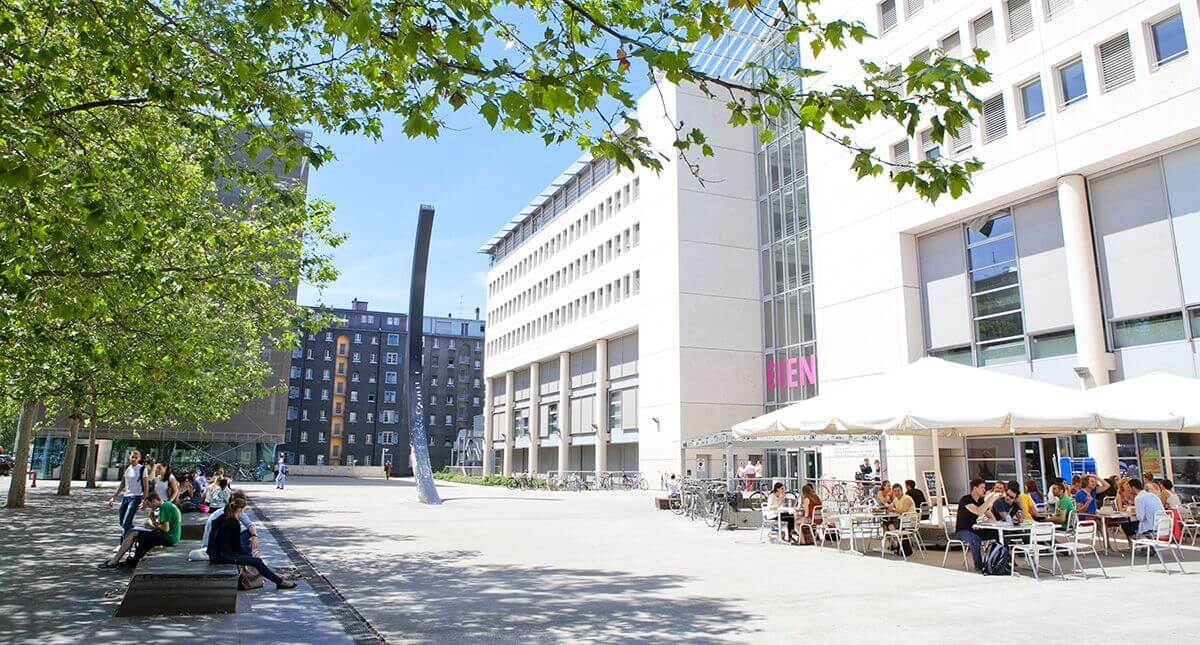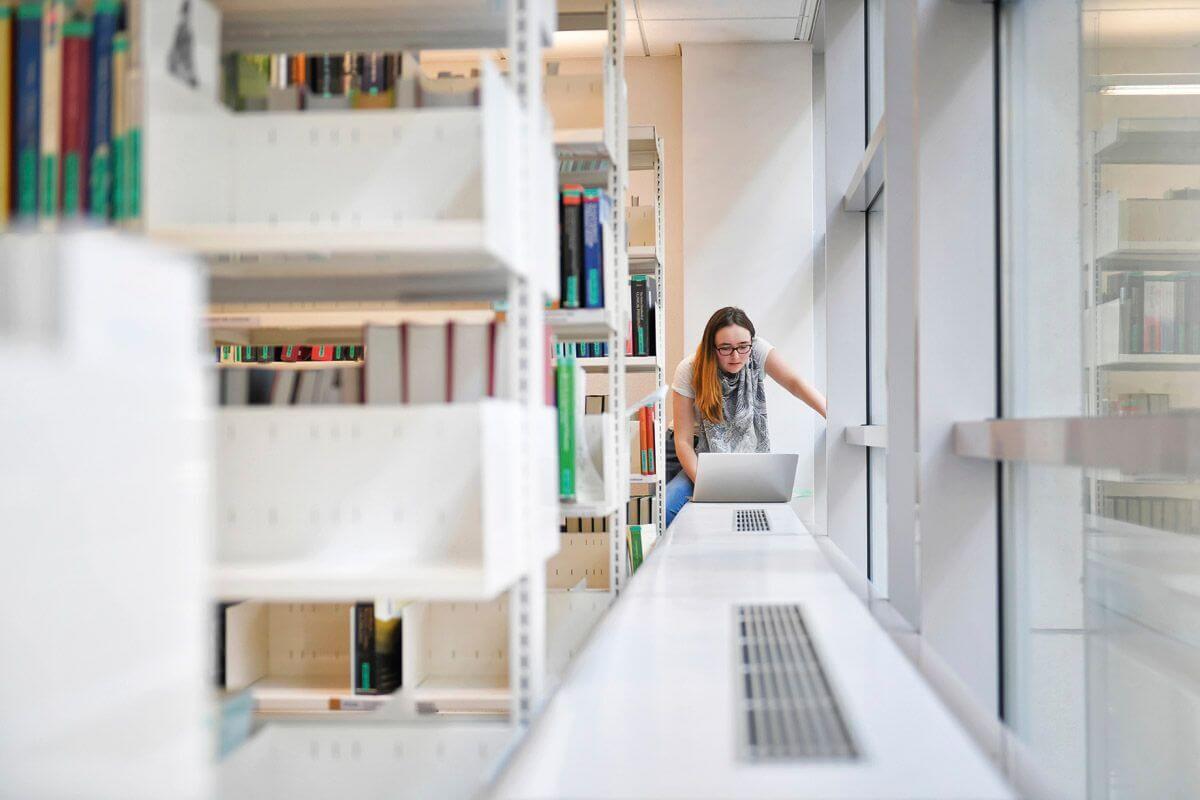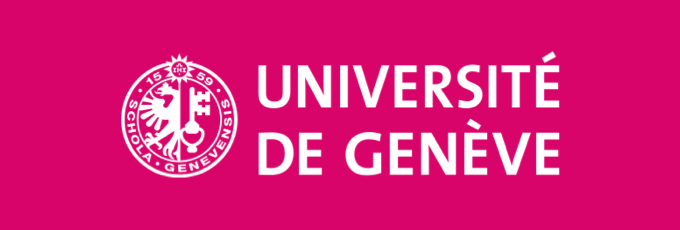Since its founding in 1559, the University of Geneva (UNIGE) has been pushing boundaries and providing a research-led learning environment that is second to none. Today, the prestigious institution provides a rigorous, demanding education to more than 17,000 students from 150 different nationalities.
UNIGE has built strong ties with many national and international Geneva-based organisations, such as the World Health Organisation, the International Telecommunications Union, the International Committee of the Red Cross, and the European Organisation for Nuclear Research along the years.
UNIGE offers more than 500 programmes — including 136 bachelor’s and master’s degree programmes, 87 doctoral programmes and 343 continuing education programmes covering an extremely wide variety of fields including exact sciences, medicine, humanities, social sciences, law and so forth. Students enrolled in UNIGE master’s programmes can choose from the following concentration subjects: Economics; Responsible Management; Statistics; Wealth Management; Business Analytics; and Commodity Trading.
A transformative MBA in the heart of Europe
As a result of the merger between the departments of Economics and Hautes Études Commerciales (HEC Genève), the Geneva School of Economics and Management (GSEM) was born. Located in the heart of Geneva, the school has long-standing accreditations by the agency of Accreditation and Quality Assurance (AAQ) and Association of MBAs (AMBA) as well as membership with the Association to Advance Collegiate Schools of Business (AACSB) and European Foundation of Management Development (EFMD).

The University of Geneva is home to more than 17,000 students of some 150 different nationalities. Source: University of Geneva
One programme that best reflects GSEM’s finest qualities is the Executive MBA, a transformative offering that equips students with the business knowledge, leadership skills and networks to accelerate their career. The school has an exceptional network of connections thanks to its long-standing history of more than 25 years — 97% of over 1,100 alumni around the world have had a salary increase during their studies.
“The EMBA programme provided me with a bird’s eye view of different strategic and operational aspects of companies,” shares Christine Esseiva, an EMBA graduate who is now a Multimedia Editor as well as Communications and Marketing Manager. It teaches students to adapt to a new environment and develop relevant solutions fit for new scenarios. “It lent me additional credibility and validated my new skills,” she adds.
The EMBA curriculum adapts to students’ needs, focus, industry, duration, frequency, availability, language and other entry points. It spans two years, starting at the end of August and ends in June. The first year is structured in a block or bi-weekly format.
Business innovation and leadership transformation are the driving forces behind UNIGE’s EMBA. Another important component of the programme is its focus on developing soft skills and abilities to cooperate with people from diverse backgrounds, cultures and working styles. “It provides many platforms for networking, which I believe is the primary way to get first-hand insight into new technologies and trends in different industries,” shares Esseiva.
The EMBA attracts professionals from all over the world thanks to its proximity to international organisations and companies. Geneva is home to numerous international companies such as Procter and Gamble, CERN, EPFL, McKinsey — making it a gateway to a career in Switzerland, the region and the rest of the world. Plus, the Swiss standards of education excellence are well-known to recruiters.

The University of Geneva has strong ties to many national and international Geneva-based organisations. Source: University of Geneva
More importantly, the EMBA is a programme that nurtures responsible leaders for a diverse and changing society. “It was during my time in the EMBA programme that I really saw the value of having people from different cultures in one room,” says alumnus Eric Stobbaerts, who is currently the International Development Director with the Drugs for Neglected Diseases initiative (DNDi).
For Stobbaerts, the exchanges with his peers, professors and guest speakers played a huge part in his learning trajectory at UNIGE. The high-quality, cultured and vibrant lifestyle made lifelong memories. “This melting pot of a variety of cultures, nationalities and experiences that I enjoyed so much during my EMBA studies has found purpose in my workplace today,” he explains.
Alumnus Antonin Reymond who is currently in charge of communications at the Fédération des Entreprises Romandes Genève, a Swiss employer organisation based in Geneva, agrees. “The EMBA brings together a very diverse group of participants and creates space for them to exchange ideas,” he shares. Reymond believes that it is important to step out of one’s comfort zone and discover new things. “You cannot progress without interacting with others and learning from their experience,” he adds.
For the past three years, Reymond has been coaching groups of students through the Self-Leadership module. The module forms part of the EMBA curriculum and focuses on providing students with tools to reflect on their career paths. “It essentially equips them with the skills needed to lead from within,” he said.
Esseiva agrees. “The world is constantly changing, and your vision, as well as your operational skills, should keep pace with it,” she says.
Follow UNIGE on Facebook, Twitter, YouTube, and Instagram, and GSEM Executive Education on Facebook and LinkedIn











